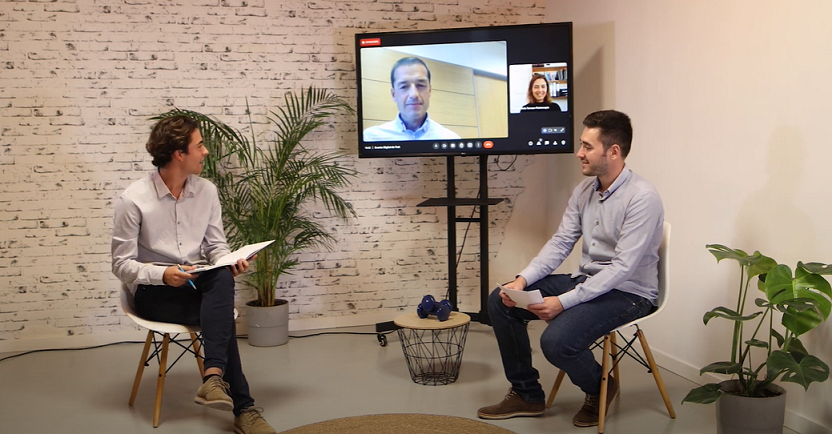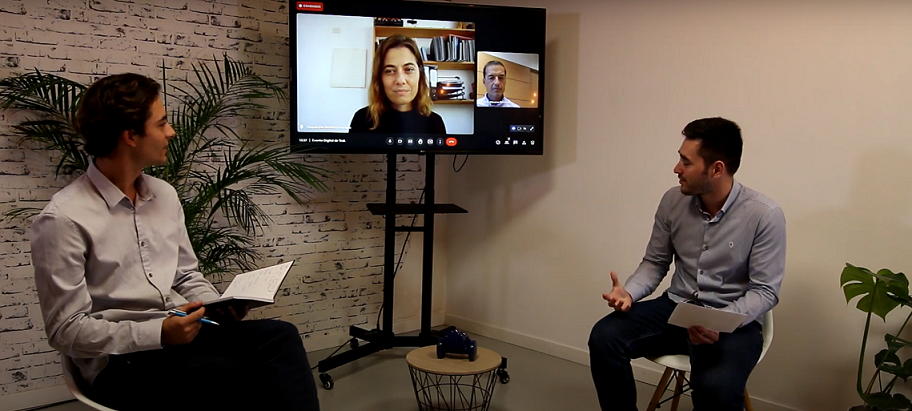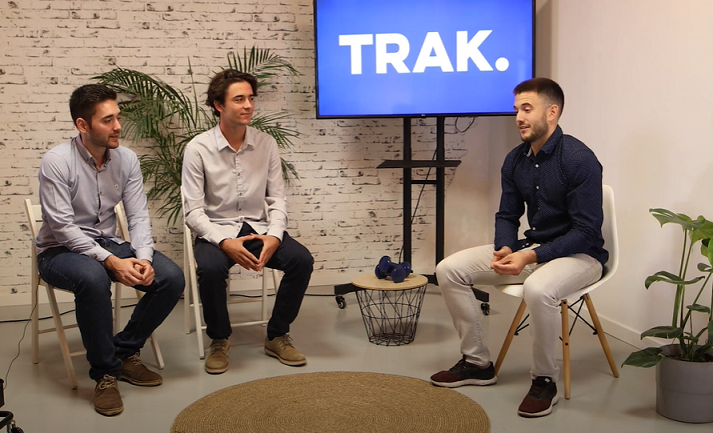Event: TRAK leads the way in digital physiotherapy
Before we begin this update on what took place at yesterday’s event, we would like to thank you on behalf of the entire TRAK team for your attendance! With you we reaffirm our work as a company: to work for the evolution of the sector and for rehabilitation to reach all patients equally.
Yesterday took place our TRAKEVENT: Digital transformation in physiotherapy and rehabilitation, in which we discussed the technological development of the sector and how the applications that we can find on the web or on the smartphone constitute new clinical tools at a “click” of the health professional.
Digital health is a growing discipline that is increasingly being implemented in the way the sector works. But where is this current of thought leading us, what transformation is taking place in the healthcare field and how can it be implemented in routine clinical practice?
These questions were answered by our guests, without whom our event would not have been possible. Ricardo Llavona, Raquel García Tarrazo y Fernando Urtasun accompanied us as experts, disseminators and pioneers in digital rehabilitation and told us about their experience in implementation.
Ricardo Llavona: “Technology will help you change your life”
Dr. Llavona spoke about the relevance of the recognition in recent years of the main areas of action in rehabilitation: disability and pain. And he highlighted the focus and prioritization of the problem by institutions such as the WHO with the creation of the Rehab2030 whose objective is to improve patient care in the rehabilitation area.
Personalization and individualization of treatment are increasingly becoming standard clinical practice thanks to the implementation of technology in any current healthcare model.
Regarding the future of the sector, Ricardo commented: “All the specialties have focused on the curative and care area, and the great challenge really lies ahead of us, in being able to provide care that covers all the preventive areas. And for us, within the area of rehabilitation, that challenge will be helped by digitalization”.
Ricardo wanted to put on record in his speech that the digitalization of the healthcare sector is a natural step and the best solution to real public health problems such as the lack of adherence to treatments and therapeutic exercise programs and the possibility of making healthcare accessible to any part of society.

Raquel García: “In physiotherapy, monitoring is key to adherence”.
As an expert and disseminator in digital physiotherapy, Raquel shared her experience and her point of view on the importance of digitalization in rehabilitation.
Beyond tele-consultations or videoconferences, Raquel defines digital physiotherapy as a discipline derived from e-health in which ICTs are applied to any field of physiotherapy. It would be a form of assistance, monitoring and storage of clinical information dedicated to the patient.
Raquel stressed the importance of meeting the needs of the world’s population in terms of rehabilitation: “A study published in Lancet por Alarcos Cieza said that one third of the world’s population needed rehabilitation and I believe that one of the ways to make rehabilitation more accessible would be through technology. Ubiquity and accessibility has to be one of the great advantages of digitization”.
He also highlighted the facilities that technology offers patients in terms of travel, local costs and the possibility of offering rehabilitation at the patient’s level, implementing the treatment in their daily lives and involving them in the rehabilitation process by educating them and encouraging healthy habits.
But how do you implement this digitalization in your treatments? Well, by drawing up a correct anamnesis through the use of questionnaires and scales, a clinical interview is conducted by video call and the clinical history is compiled with imaging tests and other diagnostic tools. From there, the treatment is stipulated and the patient is followed up.

Fernando Urtasun: “TRAK has changed the way I do physiotherapy”.
Telling us how he experienced the recent pandemic, Fernando explained how he started prescribing therapeutic exercise to his patients and why he decided to implement our platform, TRAK, to your daily clinical practice.
Fernando uses TRAK in almost all his treatments when it comes to prescribing therapeutic exercise. “I started using the platform mainly with patients who came to my clinic with shoulder problems or low back pain. But I realized that when they finished their treatment they demanded more from me because it helped them reduce their pain and improve their functionality, so I have started to introduce it into a more preventive part of my clinical practice.”
He also highlighted the platform’s ability to save your own protocols and the size of the library, as well as the possibility of entering your exercises, customizing TRAK for each physiotherapist.
